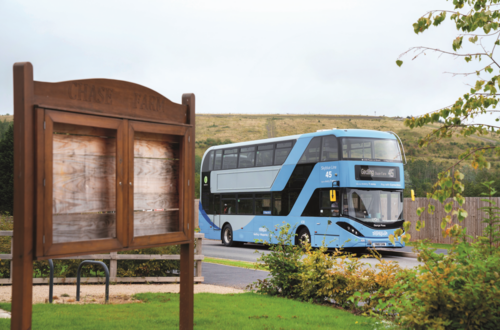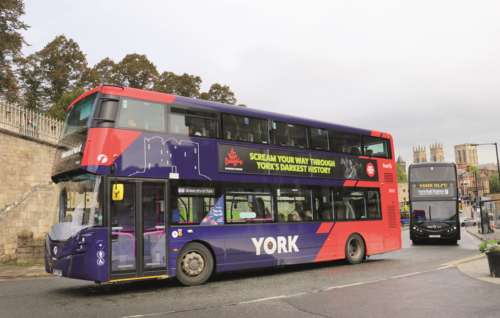
The RHA and CPT have given their thoughts on the manifesto pledges ahead of the general election
Trade bodies have given a mixed response to the manifestos announced in the run up to the general election and what the parties have said about future transport policy should they win.
In its plans for transport, the Greens’ plan to cut carbon emissions by championing ‘better, cheaper public transport’ with increased annual public subsidies for both rail and bus, to the tune of £10bn, as well as investing an additional £19 billion to improve public transport by the end of the next Parliament. The party will also focus on ‘active travel,’ and has pledged to invest £2.5bn a year in new cycleways and footpaths as well as reducing traffic in residential areas.
Meanwhile, the Conservative party has announced plans to extend the £2 fare cap on buses in England, and has committed to maintaining the scheme for the entirety of the next Parliament, something it says will benefit young people and low-income households. It would be funded by a promised reform of the railway, which it says could save up to £1.5 billion per year.
Chief Executive of the Confederation of Passenger Transport (CPT) Graham Vidler said: “It is good to see the Conservative Party recognising the importance of buses by committing to continue fully funded support for bus fares if they win the next election. But while they reaffirm a commitment to support bus services across the North and Midlands – with funding reallocated from HS2 – today’s manifesto announcement is a missed opportunity to demonstrate a commitment to grow services across the entire country.”
Turning to Labour’s manifesto, Graham commented: “We welcome Labour’s manifesto commitment to a long-term transport strategy and – as set out in CPT’s own manifesto, Driving Britain Forward – this commitment must be matched with a five-year long-term spending programme, as happens for rail.
“Nothing less will ensure local authorities and operators can maximise investment in buses, drive a swift and smooth transition to a zero emissions fleet, and deliver what passengers want: more bus services going to more places that are also more reliable and quicker.

“In the short term, the industry needs urgent clarity on the future of the English £2 fare cap which ends on 31 December. It is disappointing that the Labour manifesto is silent on this because passengers could continue to benefit from industry and government working together to keep fares low, particularly if investment is targeted on key passenger groups, such as under 22-year-olds.”
The CPT added that it welcomes Labour’s pledge to fund 10-year budgets for research and development institutions, and said that it also looks forward to working with local transport and planning authorities to ensure space for bus and coach is given clear priority in local growth plans and road network renewal.
Also speaking about the Labour manifesto, RHA Director of Public Affairs & Policy Declan Pang said: “It is positive to see Labour’s commitment to reform the planning system which continues to hamper the vital infrastructure our industry relies on. We welcome the focus on streamlining the process for nationally significant infrastructure projects, such as the Lower Thames Crossing.” He added: “We welcome Labour’s plan to prioritise dealing with the scourge of potholes on our highway network.”

